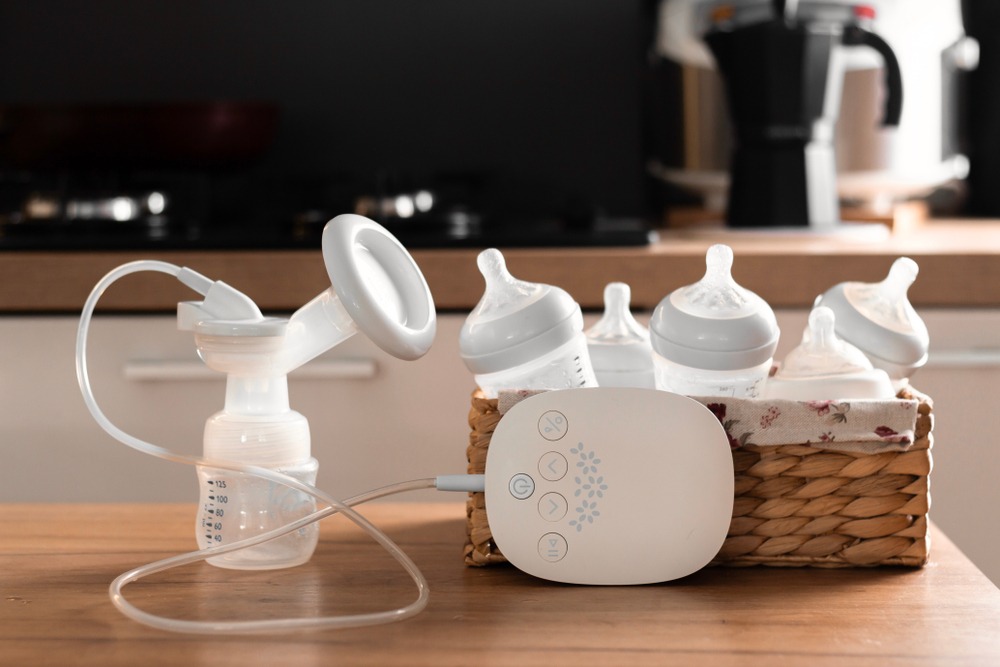
When you’re preparing to welcome your baby through surrogacy, one of the many decisions you’ll face is how to feed your newborn. Whether you’re considering your surrogate pumping breast milk for your baby, or considering breast milk vs formula in surrogacy, there’s no “right” answer, only what’s right for your family.
These are conversations we all discuss prior to being matches, so everyone’s expectations are being managed.
The surrogate will discuss her willingness to pump and for how long with her agency upfront, so that this will be documented in the agreement between the surrogate and Intended Parents. Keep in mind that circumstances can change with her ability or willingness to pump, and the Intended Parents may also decide to use formula instead.
Below, we explore the considerations, benefits, and logistics of surrogacy pumping breast milk versus using formula, so you can make an informed and confident decision.
1. The Benefits of Breast Milk
Breast milk provides a unique blend of antibodies, nutrients, and hormones designed to support your baby’s immune system and development. Babies who receive breast milk (whether from the surrogate, a donor, or through induced lactation by an intended parent) often have fewer ear infections, respiratory illnesses, and digestive issues in the first year.
For intended parents, the idea of continuing this connection from the surrogate’s pregnancy into early infancy can feel deeply meaningful, a way of extending that nurturing bridge between gestation and your baby’s first days.
2. The Practicalities of Having Your Surrogate Pump
If your surrogate is open to pumping, it is important to have clear communication and a written agreement before birth. Some intended parents choose to have their surrogate pump for a few weeks or months, while others may only request colostrum, the nutrient-dense “liquid gold” produced in the first few days after delivery.
Here are some key points to discuss:
- Duration: How long will she pump—days, weeks, or months?
- Compensation: This weekly compensation is included in the legal agreement, so everyone is on the same page.
- Shipping: How will milk be stored and transported if you don’t live nearby. We as agency provide resources for this to help with this process.
- Health considerations: Ensure proper hygiene, safe storage, and handling of milk.
Working through these details with your surrogacy agency or attorney ensures everyone feels supported and respected.
3. Emotional Considerations Around Surrogacy Pumping Breast Milk
Having your surrogate pump can feel bittersweet. On one hand, it provides your baby with the benefits of her milk; on the other, it can potentially be seen as extending the emotional tie between your surrogate and your child at a time when everyone is adjusting to a new chapter.
Some surrogates appreciate the opportunity to continue helping the baby transition into the world, while others feel that pumping prolongs their physical and emotional recovery from the pregnancy. Intended parents may also feel mixed emotions, grateful for all the surrogate has done for them, but ready to move forward as a family unit.
It is important to talk openly about how everyone feels and to check in regularly with the agency and during the pumping period.
4. Formula Feeding in Surrogacy: A Healthy Alternative
Formula feeding is also an excellent option for many families. Modern formulas are scientifically designed to provide complete nutrition, and countless healthy, thriving babies are raised on formula from day one.
For some intended parents, formula feeding simplifies logistics and helps establish a clear boundary after delivery. It also avoids the cost and coordination of shipping or storing pumped milk and provides for consistency with feeding should the surrogate only pump for a few weeks.
If bonding is a concern, know that holding, cuddling, and talking to your baby during bottle-feeding offers the same nurturing connection, whether the bottle contains breast milk or formula.
5. Combination Feeding: Using Both Surrogate Milk and Formula
Some families choose a blend, starting with the surrogate’s pumped milk for the first few weeks, then transitioning to formula once the baby is home and routines are established. Others may supplement with donor milk from a milk bank or private donor. Some Intended Mothers might try to induce lactation so they may have the experience of breastfeeding their newborn.
You may wish to confer with a lactation consultant or your doctor to discuss this further.
This hybrid approach can offer the immune benefits of early breast milk while maintaining flexibility and independence over time.
How to Decide the Best Feeding Plan for Your Surrogacy Journey
Every surrogacy journey is unique, and how you feed your baby is a deeply personal decision. Whether your child receives breast milk or formula, what matters most is that they are loved, nourished, and secure.
If you’re considering having your surrogate pump, discuss it early, document expectations clearly, and ensure that everyone feels comfortable with the plan. If formula feels like the right fit for your family, embrace that choice with confidence.
Parenthood is filled with decisions big and small; this is just one of many where following your instincts will lead you exactly where you’re meant to be.
Additional FAQs
Should my surrogate pump breast milk for my baby?
If your surrogate is open to pumping and can, then great, if that is your desire. This is such a personal preference and only you know what is best for you, and your situation. Some would say they are so many benefits to breast milk, where others are ok just using formula.
Is formula feeding okay for babies born through surrogacy?
Yes. Modern formulas provide complete nutrition, and many intended parents choose formula because it is predictable, accessible, and easier logistically.
How long can a surrogate pump after delivery?
Some surrogates only pump colostrum for a few days, while others pump for weeks or months depending on the agreement.
